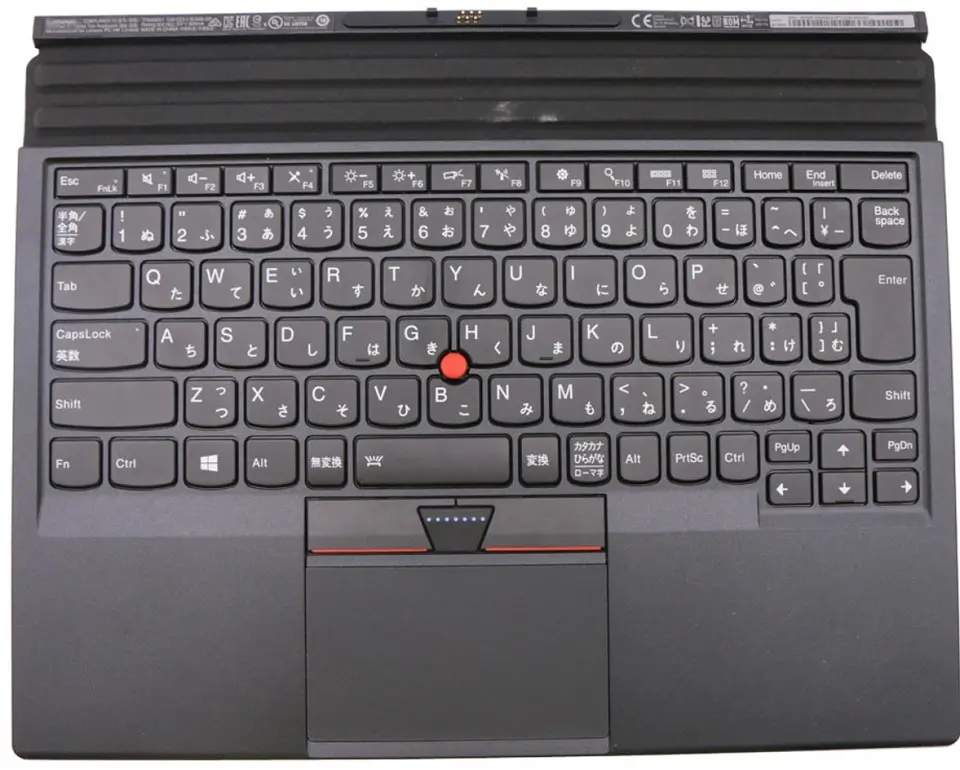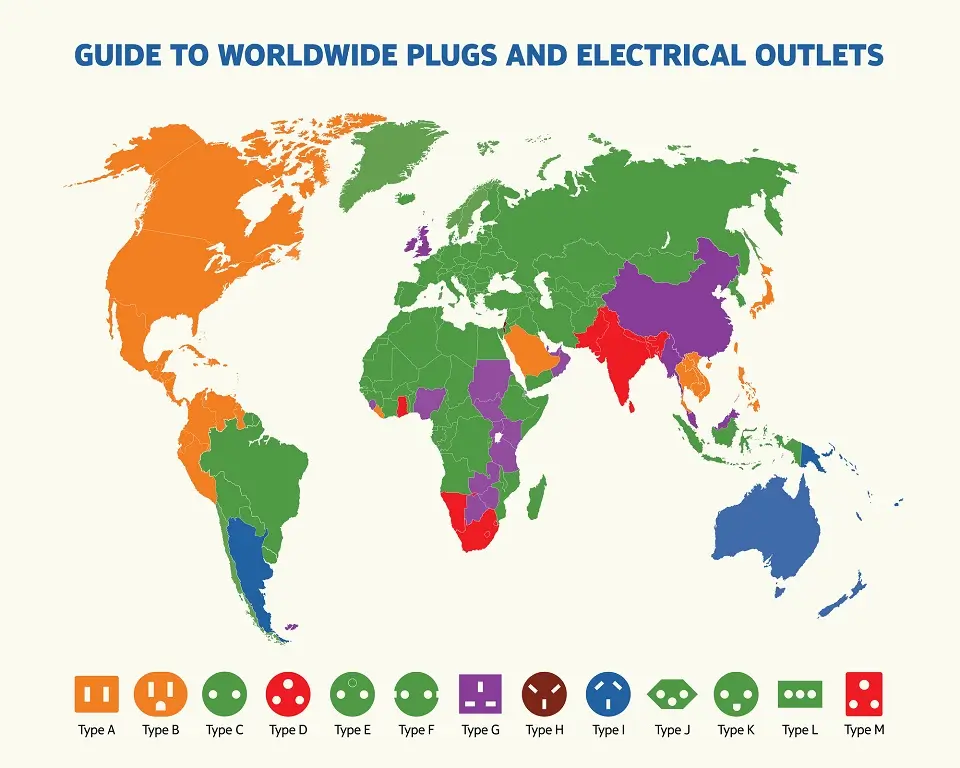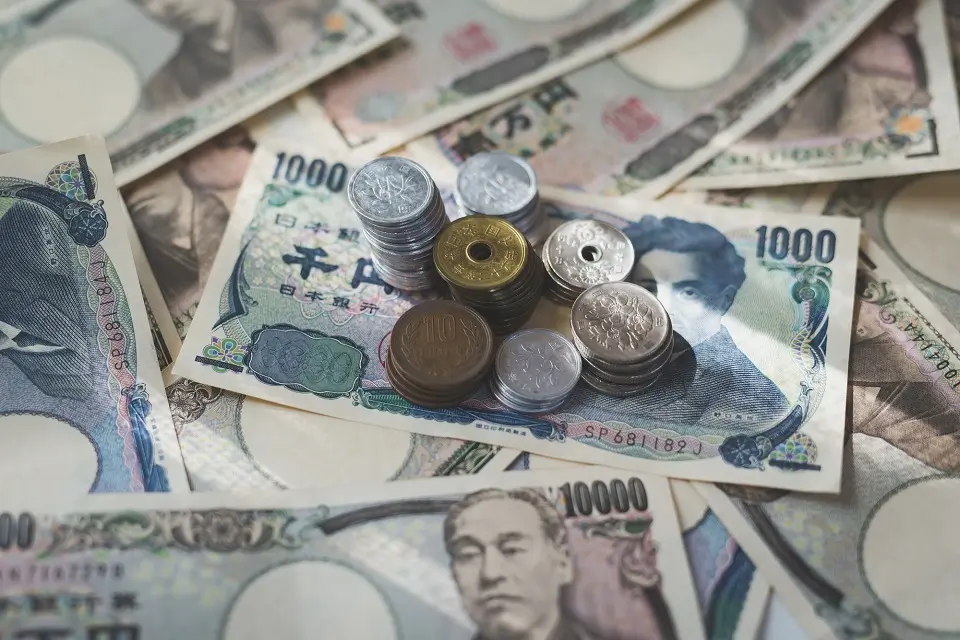What to Pack Before Moving to Japan

Are you excited about moving to Japan? Whether taking on a new job in Japan, going there to study, or just planning to spend an extended period there, you might wonder what to pack before moving to Japan. However, apart from some items, this guide about what to pack for going to Japan is also to help tourists traveling to Japan.
Moving to a new country can be an exciting and overwhelming experience, especially if you’ve never done it before. Moreover, moving to a country like Japan with a different culture and language is a very different experience, and preparing well for what to bring to Japan will come in very handy to make your initial days more comfortable in this country.
In all your excitement, it is highly possible to forget something when thinking about what to bring. Don’t worry – this guide will tell you what items you need on your packing list before moving to Japan!
Why It’s Important to Plan Things to Take to Japan?
Life in Japan is usually pretty convenient, especially in the big cities. You can generally find anything you need, but not necessarily for the same price you would pay at home or in your preferred style.
Moreover, there are other things apart from purchasing items you must not forget to take or having those that will make your life more convenient.
Here are the 13 categories of things I wished I had packed and brought when I moved to Japan. I still routinely stock up to bring those things to Japan when visiting my home country.
Copies of Important Documents


Make copies of your passport, educational certificates, and health insurance documents before you leave, and store them somewhere safe, separate from the originals. If you lose anything, you will have less trouble getting replacements or reporting lost documents to the authorities.
Note: If you are moving to Japan for work or study, you must obtain a Japanese Residence Card called Zairyū (在留). This card is a required ID for all foreign long-term residents in Japan, and you need to carry it with you at all times as proof of your residence status in Japan. Getting your Zairyū card is fairly straightforward and can be completed when you arrive at the airport.
While staying in Japan, you may decide to change your visa type, and on such occasions, you may need to show your original documents, like educational and experience certificates. Therefore, it is better to carry such documents with you.
Bring An Unlocked Cell Phone


Your mobile phone is essential for keeping in touch with your work and friends, researching stuff, or simply finding your way around Japan, but if it’s tied to your service provider from home or if it doesn’t run on the same frequencies in use in Japan, you are going to run into problems. Therefore, an “unlocked” smartphone should definitely be on your list of things to pack while moving to Japan.
As a thumb rule, most modern mobile phones are usable in Japan. However, you should still double-check the frequencies your existing mobile phone supports.
Japanese Mobile Network Bands and Frequencies
The bands and frequencies used in Japan are as follows:
- 5G bands: n3 (1800), n18 (850), n28a (700), n28b (700), n77 (3700), n78 (3500), n79 (4700), n257 mmWave (28GHz)
- 4G bands: B1 (2100), B3 (1800), B8 (900), B11 (1500), B18 (800), B19 (800), B21 (1500), B26 (850), B28B (700), B28a (700), B41 (TDD 2500), B42 (TDD 3500)
- 3G bands: B1 (2100), B8 (900), B9 (1800 Japan), B11 (1500), B19 (800)
If you come from North, Central, and South America or the Caribbean, these countries are ITU Region 2. If you bought your phone in ITU Region 2 and your phone does not support 4G, then you will only be able to use the slower 3G network in Japan, not the faster 4G/LTE and 5G networks.
It’s good to know that free Wi-Fi is common in coffee shops, restaurants, hotels, and guesthouses in Japan, but you will want to remain online when you’re getting around.
You might have a roaming plan from your regular mobile phone provider in your home country, but unless you fly in on a private jet and cost isn’t an issue, if you’re staying in Japan long-term, you will need to consider getting a Japanese phone number.
So, if you have an unlocked smartphone, the most convenient way to switch to a Japanese phone number is to get a prepaid data-only SIM card. Make sure your phone is compatible with the frequency bands in Japan.
Where Can You Get a SIM card in Japan?
Upon arrival, you can buy a data-only Japanese SIM card, eSIM, or a pocket WiFi at Tokyo Narita, Tokyo Haneda, Osaka, Chitose, Nagoya/Chubu, Fukuoka, and Kagoshima airports.
Many companies provide SIM cards in Japan, including SoftBank, DoCoMo, Rakuten, Mobal and others. The staff at the counter will help you configure and register your new Japanese SIM card (you will need your passport for ID). Again, your cell phone needs to be unlocked before you can do this.
An important note: you can only get a data-only SIM on arrival in Japan because regular, voice-enabled prepaid SIMs are only available to you after you get your Japanese Residence Certificate (Jūminhyō – 住民票).
Laptop


You may have an old laptop and plan to buy a new one. Considering Japan’s reputation for high-quality electronics, you might think it would be better to buy your new laptop after arriving in Japan. A couple of issues with this plan of yours:
- What would you do immediately after arriving? You may not have time to purchase a new laptop soon after arrival.
- Though you can buy a laptop with an English Operating System and English Keyboard in Japan, those are not commonly available. Moreover, such laptops are expensive compared to the same brand and model with Japanese OS and keyboard. The keyboards of Japanese laptops do have Roman alphabets. However, the placement of some buttons is completely different, which will sacrifice your typing speed and increase the number of typos. The reason is simple: the demand for such laptops is very low.
Considering the above point, it is quite important to pack your laptop while moving to Japan.
Power Adaptor


A power adaptor is one of the most important things to pack when moving to Japan. In Japan, the electricity they use differs from what you might have in your home country. Japanese voltage is 100-200V, and the wall outlets mostly have Type ‘A’ sockets, the same as the two-pronged plugs used in the US.
It’s essential to check the voltage requirements of your devices before plugging them in because the wrong voltage can harm your laptop, camera, or other gadgets. That’s why it’s a good idea to pack a power adaptor when you’re getting ready to move to Japan – just to be safe!
Over-the-Counter Medicines


Besides any special medicines you might need for an existing health condition, it’s a good idea to pack some of your favorite over-the-counter medicines like Tylenol or ibuprofen, as well as other common medications such as antihistamines, cough medicine, and activated charcoal to treat any digestive issues when you’re planning what to bring to Japan.
Of course, you can find these things easily in Japanese drugstores and pharmacies, but many labels are only in Japanese. If you don’t speak or read Japanese fluently, explaining what you want to the pharmacist could be tough. Also, the ingredients might be different from what you’re used to.
So, bringing a couple of bottles of each item is a smart idea to ensure you always have what you need and don’t have to worry about which medicines to buy when you’re sick.
Vitamins


Vitamins in Japan tend to be in lower dosages than you may be used to in your home country. So, if you can’t do without your daily multivitamins, definitely consider bringing them to Japan.
Toiletries


Many personal care toiletries in Japan might be quite different from what you’re familiar with, so these may be another item on your packing list for Japan.
Japanese drugstores offer a great variety of toiletries, skincare, and other beauty and personal care stuff, but the deodorant may not be as strong as you’d like, the toothpaste might have less fluoride, and there may be fewer choices to choose from. For women, the list of items to pack for Japan can include your favorite makeup items and a foundation that matches your skin.
So, if you have sensitive skin or some items you can’t live without, it’s a good idea to bring a few of these from home. That way, you won’t have to worry about finding the right items when you are there.
Food Items


In the past 10 years, it has become much easier to find specific international foods in Japan (albeit mainly in Tokyo and other larger cities) thanks to importers like Kaldi and Costco, or online services like iHerb. However, prices, availability, and brands vary considerably, so it pays to play it safe and bring a stock of whatever foods/ goodies you are likely to miss or can’t do without.
These can be easily overlooked, so take some time to think about it. For instance, mine are sugar-free organic peanut butter, smoked paprika, Old Bay seasoning from the U.S., truffle paste, dried porcini mushrooms, and vegan stock cubes from Italy. Being able to whip up some flavors of home whenever you need to helps keep homesickness at bay.
Bring Some Gifts and Souvenirs from Home


Japanese people are big on giving and receiving gifts. If you know you’ll be staying with a host family or have some friends or colleagues in Japan, be sure to pack some small gifts from your home country before traveling to Japan. It is a gesture that will be appreciated.
Also, in Japanese culture, gift-giving is an essential aspect with its own strict set of customs, so it is very important to understand the proper etiquette of giving gifts in Japan. You may check this article about gift-giving in Japan. Moreover, apart from social gifting, gifting is quite common in Japanese work culture as well.
You don’t have to give anything too big or too extravagant because in Japan, as a general rule, the receiver is usually expected to give something of more or less equal value in return.
So, the average Japanese person would be troubled by anything too expensive because it means they would feel pressured to give you something of equal value in return. Thus, appropriate gifts include organic tea, candies or chocolates, nicely wrapped scented soap from your country, or small plush toys.
One important point – a gift presentation should be as nice as possible. Japanese people consider it an insult if you present a dented box of chocolates or candy. So, ensure any gifts you give are nicely wrapped or presented in high-quality paper or fabric gift wrap. Avoid using white-colored paper, as white is associated with funerals in Japan.
Spare Cash


While credit cards are widely accepted all across Japan, some places do not accept American Express. Apart from that, you may always end up at some places that may not accept credit cards. So, it is always useful to carry some Japanese yen with you.
Cash machines are readily accessible everywhere, so before you leave your home country, make sure your bank card is set up to withdraw cash from ATMs in Japan.
Clothes


If you are moving to Japan for the long term, eventually, you will have to buy clothes here. Moreover, you get a wide choice of clothing items for variety, quality, and price range in Japan. However, there are some challenges. These are as follows:
Clothes for Plus-Sized People
This is particularly true for tall people (over 1.75m for men, over 1.65cm for women), who wear anything over an EU/U.S. Medium and are plus-sized or curvy.
If you fall into this category, buying clothes in Japan is challenging. With so many foreigners staying in Japan and the increasing heights of Japanese people, you can find clothes for large body sizes in Japan. However, the availability of such large-sized clothes is still limited, and the choices you may find will also be limited.
Shirts for People with Long Hands
Yes, you heard that right! Japan being a formal country, you will certainly need long-sleeved shirts, especially in business settings. Though shirts in Japan are sold with a combination of collar size and sleeve length sizes, it is still a challenge to find those for people with long hands because the length of hands of Japanese people is comparatively short.
Trousers for Long-Legged People
Similar to the shirts, you may often face challenges finding trousers if your legs are long. The reason is the same that Japanese people’s legs are comparatively shorter.
Considering all the above points, it will be safer to pack some extra clothes with you while moving to Japan.
Slip-on Footwear in Your Size


Everyone knows by now that you never wear your street shoes when entering a Japanese home. This is also an unspoken rule when you enter a dormitory or a shared house, as well as traditional restaurants and other premises. But remember to keep your socks on, or bring a clean pair of socks to slip on for the initial days.
So, if you have shoes that need to be laced, buckled, or otherwise a pain to take on or off more often than not, you might want to invest in some presentable, comfortable footwear that can be quickly put on or taken off, such as loafers and mules.
Add these to your list of what to pack when moving to Japan and buy a few pairs to bring along, especially if you have feet larger than US Size 7, because you might not easily find shoes in your size when you get there.
International Driving Permit


To drive legally in Japan, you need to have one of the following:
- An international driving permit (IDP) in the Geneva Convention format (no translation needed)
- A driver’s license issued by one of the countries with bilateral agreements with Japan. These countries are Switzerland, Germany, France, Belgium, Monaco, Estonia and Taiwan. You can drive in Japan on a license from one of these countries for up to a year from your arrival. You need to also carry a certified translation of your license with you.
- A Japanese driving license
Though public transportation in Japan is very convenient and efficient in metropolitan areas like Tokyo, Osaka, Yokohama, etc., you may still like to explore smaller tourist areas by a rental car. Moreover, a car may become necessary if your destination in Japan is a smaller city or rural area. Considering this, having a driving license may be a good idea.
Foreigners can drive on an international driver’s license for up to 12 months. If you stay in Japan for longer than this, you must apply for and receive a Japanese driver’s license.
Getting a Japanese license is often a challenge in Japan for the following reasons:
Challenging Driving Tests for Japanese Driving License
Japan is a very process-oriented country, and the driving tests are no exception. During a driving test in Japan, they test your safe driving skills and habits before you start driving. For example, many of the following points are not keenly observed during a driving test for a license in many countries:
- Bending down and checking if anything is under the car, both front and back.
- Looking left and right side before moving to the driver’s side.
- Looking towards the front and back sides to check upcoming vehicles before opening the car door.
- Visually adjust the seat and all reverse-view mirrors, and then buckle up your seat belt.
- While taking turns, visually moving your head to check the central reverse view mirror, the side reverse view mirrors, and the blind spot.
And the list goes on…
However, there is good news if you hold a driver’s license from certain countries or regions to avoid driving tests in Japan because people from those regions can convert their driving licenses to Japanese licenses without taking the aptitude, written, and practical driving tests.
List of Countries with Convertible Driving Licenses in Japan
- Austria
- Belgium
- Canada
- Czech Republic
- Denmark
- Finland
- France
- Germany
- Greece
- Hungary
- Iceland
- Ireland
- Italy
- Luxembourg
- Monaco
- Netherlands
- New Zealand
- Norway
- Poland
- Portugal
- Slovenia
- South Korea
- Spain
- Sweden
- Switzerland
- Taiwan
- United Kingdom
Moreover, the driving licenses from some of the states of the USA are also directly convertible to Japanese licenses without the written and practical driving tests. These USA states are as follows:
- Colorado
- Hawaii,
- Maryland
- Ohio
- Virginia
- Washington
Apart from the above regions of the USA, people holding a driving license from Indiana do not need to pass the driving license but must go through the written test.
You can find more information about driver’s licenses in Japan here.
Conclusion
When moving to a new country, especially Japan, with language issues, it takes time to find the right places to purchase daily-use items, initially. Moreover, the initial days are more hectic in settling down, and time availability may be an issue. Considering all these aspects, preparing well and packing well with important things will always make those initial days of your stay in Japan.
Cross-check this guide to plan what things you should pack to bring to Japan because this guide is from a person with personal experience of moving to Japan from an entirely different culture.


Chiara is a writer, singer, narrator and former editor-in-chief of a major website about Japan. She has worked in both international and domestic companies in Japan, and enjoys creating articles to help others succeed in their Japan-based life.

